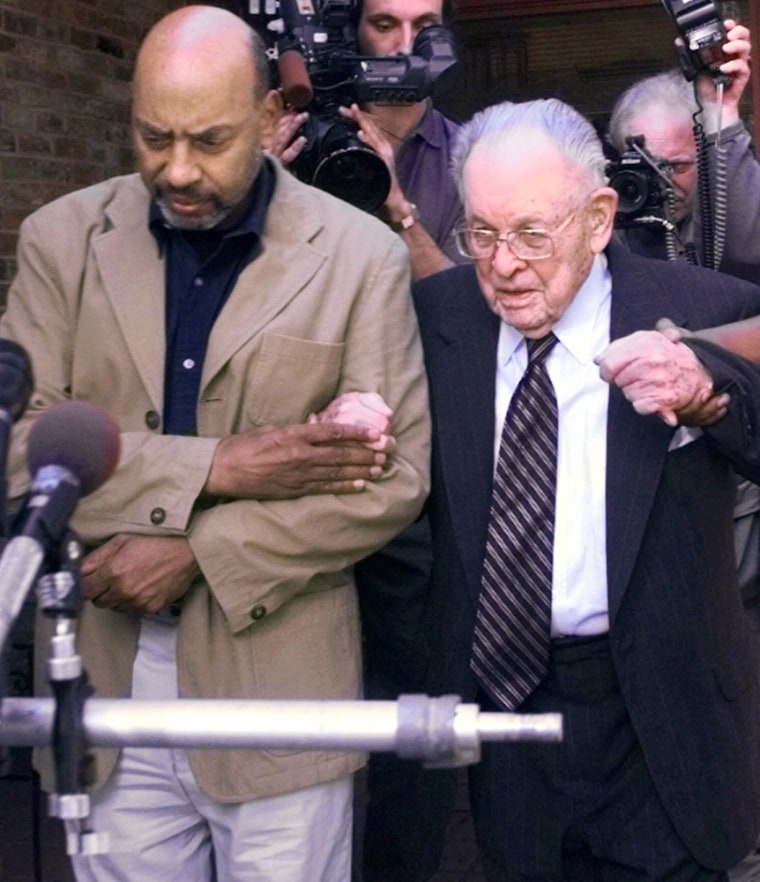Retired U.S. District Judge William Augustus Bootle, who issued a string of historic civil rights rulings in the 1960s and was burned in effigy for ordering the University of Georgia to desegregate, died Tuesday. He was 102.
Among Bootle’s rulings were ones integrating buses and school systems and ensuring blacks’ place on voter rolls. Macon’s federal courthouse was named for him in 1998.
“Judge Bootle took the lead in bringing about the elimination of segregation in the field of education and otherwise,” said Carl Sanders, Georgia’s governor from 1963 to 1967. “At the time, most politicians didn’t appreciate his attitude and his decisions. But in the long run, when you look back on the result of what he was trying to do, you can’t help but admit and admire the courage and the legal fortitude that he expressed at that particular time in the history of our state and the country.”
In 1961, he ordered the desegregation of the University of Georgia following a weeklong trial that pitted two black students, Charlayne Hunter and Hamilton Holmes Jr., against the school’s top ranks. Four days later, he stayed his own ruling to allow the state a chance to appeal, but his stay was overturned.
He then ordered the governor to continue funding the university, overriding a Georgia law that required segregated schools.
‘Right is right’
“Someone asked me the other day, ‘Wasn’t it hard to make the decision to let blacks in?”’ Bootle said at the time he turned 100. “I said it wasn’t hard at all. Once you decide what’s right, the making of it is easy. Right is right.”
In response to his ruling, whites in Macon burned an effigy of the judge.
Undeterred, Bootle later ordered the Bibb Transit Co. to integrate seating on its buses, and ordering several Georgia counties to restore the names of blacks who were removed from voter rolls.
His most bitter battle was the campaign to desegregate Bibb County schools, which began in 1963 when a federal lawsuit was filed on behalf of 44 black children.
The following year, Bootle ordered the school board to make a “prompt and reasonable start” toward eliminating separate school systems. But it would be 1970 before the schools were finally desegregated.
Bootle also presided over the trial of Preston King, an Albany man who refused to obey his draft notice because the board stopped calling him “sir” and “Mr. King” when it saw he was black.
Bootle sentenced King to 18 months for draft evasion, but he never served the time. Instead, King fled to England and remained there for 39 years until receiving a pardon from President Clinton in 2000 — a pardon which Bootle helped initiate.
“Someone asked me why I changed my mind. There’s no inconsistency between imposing a sentence and favoring a pardon,” Bootle said at the time.
King later visited Georgia several times, including a stop at Bootle’s home. He was greeted with this phrase: “Mr. Preston King, welcome back to America and to my home.”
Unlikely heritage for rights defender
State Sen. Robert Brown, a Democrat, said Bootle came from an unlikely heritage as a rural white Southerner to have such an impact on civil rights.
“You look at his profile and think that this is certainly not somebody who’s going to make a landmark decision in desegregation. But he felt it was his duty as a judge to look at the law and apply it, and that’s what he did,” Brown said.
Bootle was born in 1902 in Walterboro, S.C., but spent most of his life in Georgia.
He became a federal judge in 1954 and retired as senior judge in 1970, but he continued presiding over federal cases on a part-time basis until 1981.
His wife of more than 70 years, Virginia Childs Bootle, died in June.
A funeral was scheduled for Saturday.
